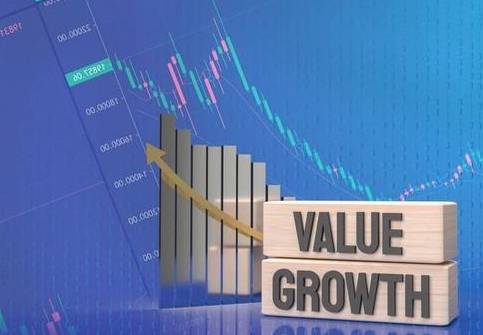The year I just turned of age, I witnessed the rise of CITIC Securities from 10 yuan to 100 yuan.
Many retail investors now open their trading software and say the first thing, "CITIC Securities once rose to 100 yuan?"
It's as if you might not know that the current China Shipbuilding, also known as the former Hudong Zhonghua, once reached 300 yuan.
The second time I made money was in 2015, and the stock that made me money was LeEco, which was later cursed by people.
I got on the train at 35 yuan, and it actually drove to 179 yuan. Even if I didn't get off at the peak, I made a lot of money.
LeEco's ecosystem was a story, and in the end, it became an accident, but it didn't affect the various star capitals, and finally paid for the vast number of retail investors.
The third time I made money was in 2021. Life always has gains and losses, and I am grateful to Aier Eye Hospital.
Although I didn't sell at the high point, the return on investment after rights adjustment was several times.
After more than a decade of stock trading, these three times were the ones where I made a lot of money, and the rest were small wins and losses.
My personal summary is that making money in the stock market depends on the wind and the big bull market, not on catching the daily limit.It's not that you can't grasp it, but losses can also accumulate quickly.
From 2010 to 2013, the market conditions were quite poor, but after several years of short-term trading, the average annualized return was more than 50%.
However, it was not only mentally exhausting, but also occasionally stepping on landmines, and did not make truly significant money.
It's like the stock market from 2022 to 2023, with small wins and losses, having held several stocks that doubled, but the overall contribution to the account value was not high.
If the bull market is seen as a trend for making money, then the goal in a bear market, or the first task, is to preserve wealth.
Some people might say that you can just rest in a bear market, but if you really understand the stock market, you know that it's impossible to completely lie flat in a bear market, there will definitely be positions and transactions.
Making money in the stock market is not just a dream, nor is it a fantasy, but it requires down-to-earth work.
Many people pursue stable profits, but in the stock market, where is there any stable profit, it's all phased.
What we need to do is to achieve excess returns.Bear market, lose less; bull market, earn more.
Thus, the secret to making money is written in the market trends, and it's quite simple.
Firstly, only invest in leading stocks, not in miscellaneous stocks.
Through years of experience, it has been found that when buying stocks, one should only focus on the leaders.
Many people like to buy some obscure stocks, and this investment approach is definitely wrong.
Because stocks are a game of chips; the more people play, the more capital is involved, the higher the probability of making money.
Some small-cap stocks have a very low turnover rate, and the transaction amount is only tens of millions, how could there be a big market trend?
Because the capital cannot enter, how can you make money then?
It is particularly easy to choose leading stocks, which can be found on the gain list and transaction list.
In a bull market, leading stocks can earn more, and in a bear market, only by investing in leading stocks can you make money.It is often said that small companies have good growth potential, but the few that can actually grow are quite rare, accounting for a very small proportion.
This is similar to the low proportion of individual investors who make money, which is also a matter of principle.
Therefore, to reduce the probability of losing money, stock selection must be more stringent, and leading companies are the best standard.
Secondly, follow the big money, not the fundamentals.
Everyone likes to study the fundamentals, which is originally correct.
However, the fundamentals studied by individual investors are often not the real fundamentals.
The fundamentals studied by big money are the real fundamentals.
Instead of looking at all kinds of news everywhere, it is better to follow the big money in stock selection, as they have already eliminated the mines on the fundamentals.
Of course, you can also simply understand that big money does not look at the fundamentals, they can make money through trading, using chips.
It can only be said that following the big money is more reliable than selecting stocks by oneself.As for the fundamentals, it's best to understand them if possible, but if not, they are not too important.
After all, all the fundamentals are ultimately reflected in the market trends, not in the financial information of F10.
Professional institutional investors are much more cautious and smarter than retail investors.
Thirdly, lie flat in a bull market and be diligent in a bear market.
In a bull market, you need to know how to hold on to your chips and not let go.
Lying flat is a kind of wisdom, because high operation frequency does not mean you can make money.
In a bear market, don't think too much, it's good enough to make money, and you need to know how to take profits.
So, in a bear market, you need to be more diligent, individual stocks do not have a long-term nature, and there are not many stocks that rise against the trend, and their endurance is even worse.
The market atmosphere in bull and bear markets is different, and the way to make money is also different.
Many retail investors believe that in a bull market, they need to be diligent to earn excess returns, and in a bear market, they need to wait more to make money, which is a big mistake.The capital form in different markets varies, and naturally, the trading methods are also different.
Making a lot of money must rely on trends, and come from lying flat, rather than from hardworking trading.
The T+0 trading method is not suitable for retail investors, it is a pitfall rather than an opportunity, after all, how can retail investors' trading be stronger than AI models?
Fourth, never be fully invested, and never be empty-handed.
When the position is high, it is 90%, and when the position is low, it is also about 20%.
Since no one is an immortal who can predict the bull and bear market, it is also impossible to be fully invested or empty-handed all the time.
The position determines the investment mentality, and many times, when the position is heavy, it is easy to subjectively see the rise, which is definitely wrong.
On the contrary, once the position is light, it is easy to see the market empty, thus missing the market.
Behind the position, there are two things.
One is the mentality, many people can't control the trading mentality, and it is easy to explode on the spot.Another aspect is risk control; if the position is well managed, the drawdown will be effectively controlled.
It is often said that investing heavily in a single stock can lead to significant profits, but in reality, the ability to hold on to it is what truly makes the big money. If you can't hold on to a heavy position, you still won't make any profit.
Fifthly, retain strong stocks and discard weak ones.
Weeding out the weak and keeping the strong is the law of survival in the stock market.
Most people who lose money tend to hold onto weak stocks for a long time.
When we buy stocks, it is a process of trial and error; making mistakes is quite normal.
But if we make a mistake, we need to correct it, which means discarding the wrong ones and increasing our positions in the right ones.
If your "hit rate" for buying stocks is only 50%, but you can strictly adhere to weeding out the weak and keeping the strong, you will definitely make money.
Because the profit from buying a stock that doubles can offset the losses from two stocks that have halved in value.
The strong get stronger, which is based on the money-making effect in the stock market. Once there is a money-making effect, more funds will enter, and the stock can enjoy a premium.But if one holds onto weak stocks, the effect of losing money will make the capital think twice, often resulting in digging a deep pit before entering the market.
So as an investor, the probability of losing money is naturally very high, and even if one makes it through, it requires a long cycle.
Investment is something that is easy to say but difficult to do. On one hand, it is because of human nature, and on the other hand, it requires insight.
Many principles, you think you understand, but in fact, you do not understand them.





























Join the Discussion